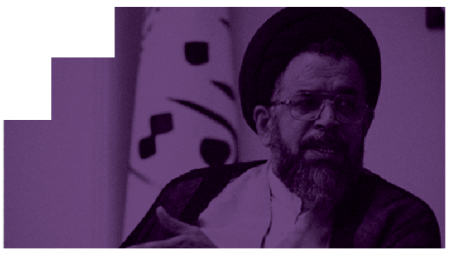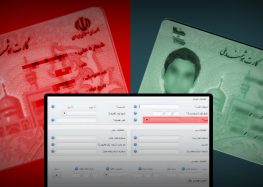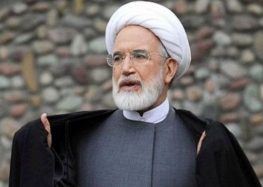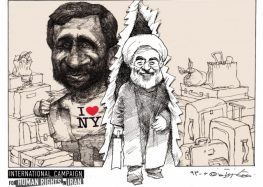Ministry of Intelligence
 Arbitrary arrests, false accusations, and harassment
Arbitrary arrests, false accusations, and harassment
Harassment of family members of critics and dissidents
Torture, mistreatment, and forced confessions
Invasion of privacy through monitoring
Censorship of newspapers prior to publication
Interference in universities
Persecution of religious and ethnic minorities
Recommendations
Arbitrary arrests, false accusations, and harassment
The Ministry of Intelligence is directly involved in imposing illegal and arbitrary restrictions on the activities of political parties and independent non-governmental organizations. There are hundreds of cases of arbitrary arrests of organization members every year, false accusations against them, and a pattern of illegal interference with the Judiciary in order to stop the activities of independent organizations.
The Ministry of Intelligence engages in a pattern of arbitrary arrests of journalists and activists, silencing critics and independent media and associations. The Ministry regularly summons individuals to their offices and threatens them without any legal justification. These pervasive attacks on dissidents and media professionals have created an atmosphere of censorship and repression, and have had a chilling effect on the exercise of freedom of expression and association.
In addition, the Ministry of Intelligence has a record of mounting false cases against activists, journalists, artists, and academics. These false accusations interrupt their work, discredit them, and often lead to their arrest. While many of the accused are eventually acquitted of their charges when their cases are finally heard in court, they are often detained for years before their cases are reviewed.
Harassment of family members of critics and dissidents
The Ministry also harasses, interrogates, and arrests family members of critics and dissidents. In 2012 and 2013, for example, family members of journalists working for news agencies outside of Iran, such as BBC Persian and Radio Farda, were repeatedly harassed and arrested.
Torture, mistreatment, and forced confessions
The Ministry of Intelligence operates various detention centers throughout Iran. Scores of human rights violations have been documented in these centers, including ill-treatment of detainees, physical and psychological torture, and denial of access to counsel or family, all in violation of Iranian and international law. Many detainees have been forced under torture to issue false confessions. According to the March 2013 report of the UN Special Rapporteur on human rights in Iran, 78% of witnesses he interviewed reported having been tortured.
In the case of political prisoners, it is the Ministry of Intelligence that makes arrests, detains prisoners in dedicated prison wards without oversight from the Judiciary, and mounts preliminary investigations before releasing them to the Judiciary. There is a consistent pattern of torture of political prisoners, especially during the initial days of their detention, often in solitary confinement and during interrogations, aimed at extracting false confessions. Many prisoners, such as the human rights lawyer Nasrin Sotoudeh, have reported that their interrogators from the Ministry of Intelligence informed them of their sentences before their trials, raising concerns about the independence of the judges in charge of political prisoners’ cases.
In addition to detention centers, the Ministry of Intelligence also operates certain prison wards without the oversight of the Iranian Judiciary, in which there is a documented a pattern of ill-treatment. For example, seven Dervish lawyers being held at the Intelligence Ministry’s Ward 209 at Evin Prison have not had access to light in months and have developed consequent illnesses.
Furthermore, the Ministry of Intelligence systematically violates due process. Detainees are routinely denied access to lawyers and are often denied knowledge of the charges against them.
Invasion of privacy through monitoring
The Ministry of Intelligence actively invades the privacy of Iranian citizens by tapping their phones, reading their text messages, and monitoring their Internet use. These monitoring mechanisms are often used to detain activists as well as denying them freedoms of expression and assembly in their private spheres.
Censorship of newspapers prior to publication
Without any authority for censorship or review, the Ministry of Intelligence routinely threatens editors, journalists, publishers, and other media professionals with arrest or closure of their publications in order to censor content prior to the publication of the news.
In direct violation of the Iranian constitution, Iran’s Ministry of Intelligence has banned hundreds of Iranian youth from pursuing higher education because of their political or religious activities. The Ministry interferes in university admissions, “stars” students (marking their educational transcripts to prevent enrollment in any Iranian university), and sits on the disciplinary committees of various universities. The Ministry also interferes with the independence of universities by establishing security offices at universities and arresting and detaining student activists who are then charged with various national security-related crimes.
Persecution of religious and ethnic minorities
During the last eight years, the Ministry of Intelligence has increased its persecution of religious minorities, including Christian Protestants, Dervishes, and Baha’is. Houses of worship are routinely shut down and leaders of religious communities are frequently monitored, harassed, and detained. For example, in May 2012, the oldest Persian-language Protestant Christian church in Iran, the Central Assemblies of God, was closed due to pressure from intelligence forces.
The Ministry of Intelligence has also engaged in the prolonged harassment and persecution of ethnic minorities, such as Kurds, Arabs, Baluchis, and Azeris. As with religious minorities, leaders of these communities are often monitored, harassed, and detained; use of their language is restricted; and university enrollment and business permits are frequently denied. For example, for more than three decades the Iranian government has persecuted Kurdish people for practicing their customs, with the police and the Ministry of Intelligence routinely arresting Kurdish citizens for observing their ethnic celebrations.
Recommendations for the Ministry of Intelligence:
- Remove the Ministry of Intelligence from universities, and end their intimidation and silencing of student activists, religious minorities, and students with independent political convictions.
- Remove the Ministry of Intelligence from prisons.
- Hold the Intelligence Ministry accountable for its interference in the affairs of the Judiciary. Restore the independence of the Judiciary.
- Prevent torture, and hold accountable those who employ the practice.
- Stop televising coerced confessions.
- Stop the abuse of national security charges against activists, artists, students, and religious and ethnic minorities.
- Respect and implement the Citizens’ Rights Bill of 2004.
- Put an end to the Ministry’s illegal interference with political groups and parties.
- Sign and ratify the Convention against Torture and Other Cruel, Inhuman or Degrading Treatment or Punishment (United Nations Convention against Torture).
- End the persecution of religious minorities.
- Respect the rights of ethnic minorities to follow their traditions, protected by Articles 19 and 20 of the Iranian constitution. Stop harassing and persecuting ethnic minorities.






